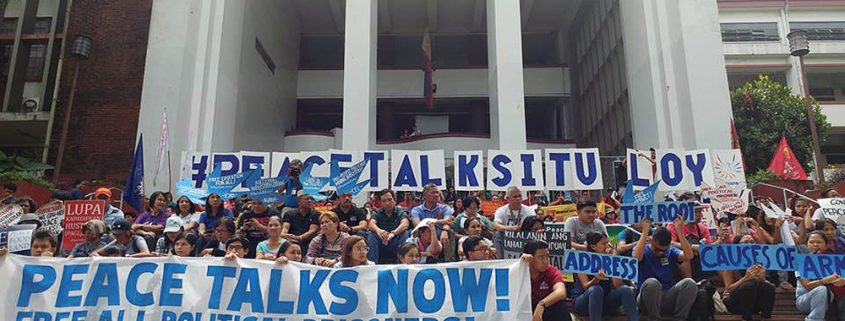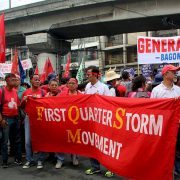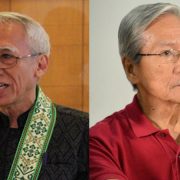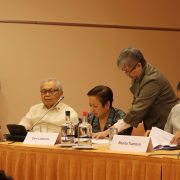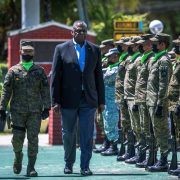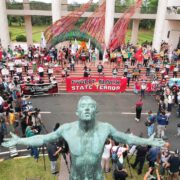Resume talks, not all-out war – peace advocates
By Mikhaela Dimpas, UP College of Mass Communications
VARIOUS sectors and peace advocates mobilized in front of University of the Philippines’ Palma Hall to remind the Duterte Administration that an all-out war against the New People’s Army is an all-out war against the people.
“Hindi na sila natuto sa leksiyon ng kasaysayan mula pa kay Marcos, Aquino, at Erap,” Bayan Muna Rep. Carlos Ysagani Zarate said.
“Ang all-out war ay napakalaking pagkabigo na pigilan ang rebelyon,” he said.
War against the people
The groups said that two presidents have openly engaged in an all-out war with rebel groups but none of it ended the conflict. Instead, it brought millions of deaths and displacements in communities.
Former dictator Ferdinand Marcos declared Martial Law in an effort to suppress the communist insurgency when at least 75,000 became victims of human rights violations.
Former President Joseph Estrada, on the other hand, waged total war against the Moro Islamic Liberation Front when millions from Moro communities were displaced.
“Itong pagbuwag sa ceasefire at sa peace talks, alam natin kung sino ang mahihirapan dito – ang mga mahihirap, ang mga nasa kanayunan,” UP Diliman Chancellor Michael Tan for his part said.
The communists withdrew from the unilateral ceasefire last Feb. 1, followed closely by the Government of the Republic of the Philippines’ own withdrawal of its own unilateral ceasefire declaration.
Karapatan’s Ma. Sol Taule said that violations and militarization by government troops still continued during the ceasefires.
In a report, Karapatan said 28,890 civilians were victimized by human rights violations during the ceasefire, while 15 deaths and two forced disappearances happened just after a week of lifting the ceasefire.
“Sino nga ba ang war freak at ayaw ng kapayapaan? Malinaw na patuloy ang paglabag ng karapatang pantao sa mga komunidad,” Taule said.
Peace talks for all
The groups stressed that the resumption of the peace negotiations, not a militarist approach, is key to addressing the roots of the decades-long rebellion in the country.
“Mula 1970s ay pumupunta na ako sa kanayunan at nagsisilbi. Ang mga problema noon ay tuloy-tuloy parin hanggang ngayon,” said Tan.
“This [peace talks] is our last chance for some kind of peace,” he added.
Rep. Zarate also said that the gains of the peace negotiations are already “too fruitful” to terminate.
“Minabuti na ng dalawang panels na i-accelerate ang usaping pang-kapayapaan,” Rep. Zarate said.
The reciprocal working committees have been working on the Comprehensive Agreement on Political and Constitutional Reforms (CAPCR) and the Comprehensive Agreement on End of Hostilities and Disposition of Forces (CAEHDF) while the panels are talking about the Comprehensive Agreement on Social and Economic Reforms (CASER), Zarate said.
The reforms, he stressed, will address the roots of poverty and inequality in the country as well as pave the way for genuine agrarian reform, free education, gender equality, and the right to self-determination of national minorities, among others.
In response to Pres. Duterte’s pronouncement that talks will only resume if there is a “compelling reason,” Zarate said that the plight and the support of the people should be enough to propel the talks forward.
“Ang compelling reason na iyan ay ang pagnanais ng mga mamamayang Pilipino na magkaroon na ng isang pang-matagalan at may hustisyang kapayapaan sa ating lipunan,” he said. # (Featured photo by the Philippine Collegian)

